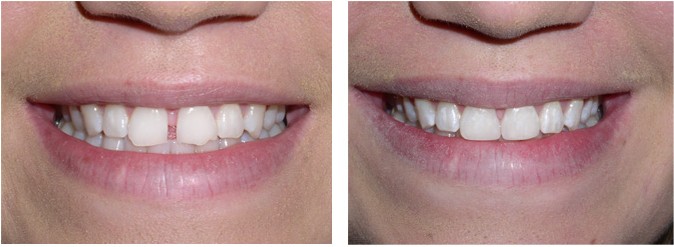Make a positive first impression on everyone you come into contact with by dressing appropriately. Try putting on a radiant smile for them! Unfortunately, that’s easier said than done for many of us who have teeth that are chipped, stained, or discoloured. Don’t give up hope: Cosmetic dental bonding can fix those issues with dental bonding resin and bring your teeth back to their former glory. How does cosmetic bonding work and is it a good idea for you to try it out? Learn more by continuing to read.
What Is Cosmetic Bonding?
Composite resin is applied to your teeth as part of a cosmetic dental procedure known as “tooth bonding.” Repairs a variety of ailments, including:
· Teeth with gaps
· Teeth that are misshapen or chipped
· Teeth with fractures or cracks
· Decay and discoloration
· Teeth that are too small
· Exposed root protection
If you’re not interested in or don’t qualify for veneers, cosmetic bonding is a great option. Bonding is more popular than veneers because it’s less expensive and doesn’t necessitate removing as much of your natural tooth enamel.
How Does Dental Cosmetic Bonding Work?
Because of this, cosmetic dental bonding is a great alternative to veneers. It’s also feasible to complete the procedure in one visit if you’re simply having one or a few teeth fixed.
Preparation
Dental bonding requires almost little pre-treatment on your part. To ensure a successful bonding procedure, make sure you visit the dentist with clean teeth and flossed between them.
The dental bonding resin will be prepared by your dentist when he or she has selected a shade that goes well with your teeth. You can mould the resin into any shape you want because it’s putty-like. Local anaesthetic may be required if your dentist needs to drill out and smooth down your teeth or if the damaged area is near a nerve. Anesthesia isn’t required for minor repairs.
The Method
Roughing up the tooth’s surface is the first step in the bonding process. Before applying the resin, the dentist will administer a conditioning solution that will assist it adhere to your teeth.
Once the resin is applied to your teeth, it will be sculpted into a desired shape. A bright light will be shone on the resin as soon as it has been sanded down. In just a few seconds, the UVA radiation from this light cure and solidify the resin.
Finally, the dental bonding resin will be trimmed and smoothed so that it fits comfortably in your mouth. Depending on how much work needs to be done, the treatment might take anywhere from 30 minutes to an hour per tooth.
Aftercare
A few days following your bonding operation, you may notice some discomfort in your teeth, especially if the enamel was removed. Pain relievers and soft foods that aren’t too hot or cold can help you deal with this. Just brush and floss your teeth twice a day as you normally would.
Is There A Time Limit?
Your natural teeth are a lot more durable than we give them credit for! The bonding resin isn’t quite as strong as your teeth. As a result, you’ll need to steer clear of anything that could harm your teeth. Simply refuse to chew on ice, pens, pencils, or your fingernails.
The bonding resin can also be damaged if you grind your teeth. Investing in a nighttime mouth guard is a good idea if you grind your teeth while you sleep. In comparison to natural wear and tear, grinding can quickly wear down and chip away resin.
Coffee, soda, tea, and smoking can all discolour the resin. Although whitening treatments can be used to restore your natural enamel, they won’t work on this. In order to avoid damaging your teeth, especially if you’re a coffee drinker, it’s a good idea to use a reusable straw.
Dental bonding can last for up to a decade if you take appropriate care of your teeth throughout that time. After a few years, if you see chips, stains, or cracks in your teeth, your dentist can fix them.
Is Cosmetic Bonding the Correct Procedure for You?
It is time to put an end to any lingering doubts about the quality of your smile. Dental bonding may be an option for you if you’ve had enough of hiding your teeth and are ready for a change. Increasing your self-esteem and making terrific first impressions are just a few of the benefits of improving your smile.



